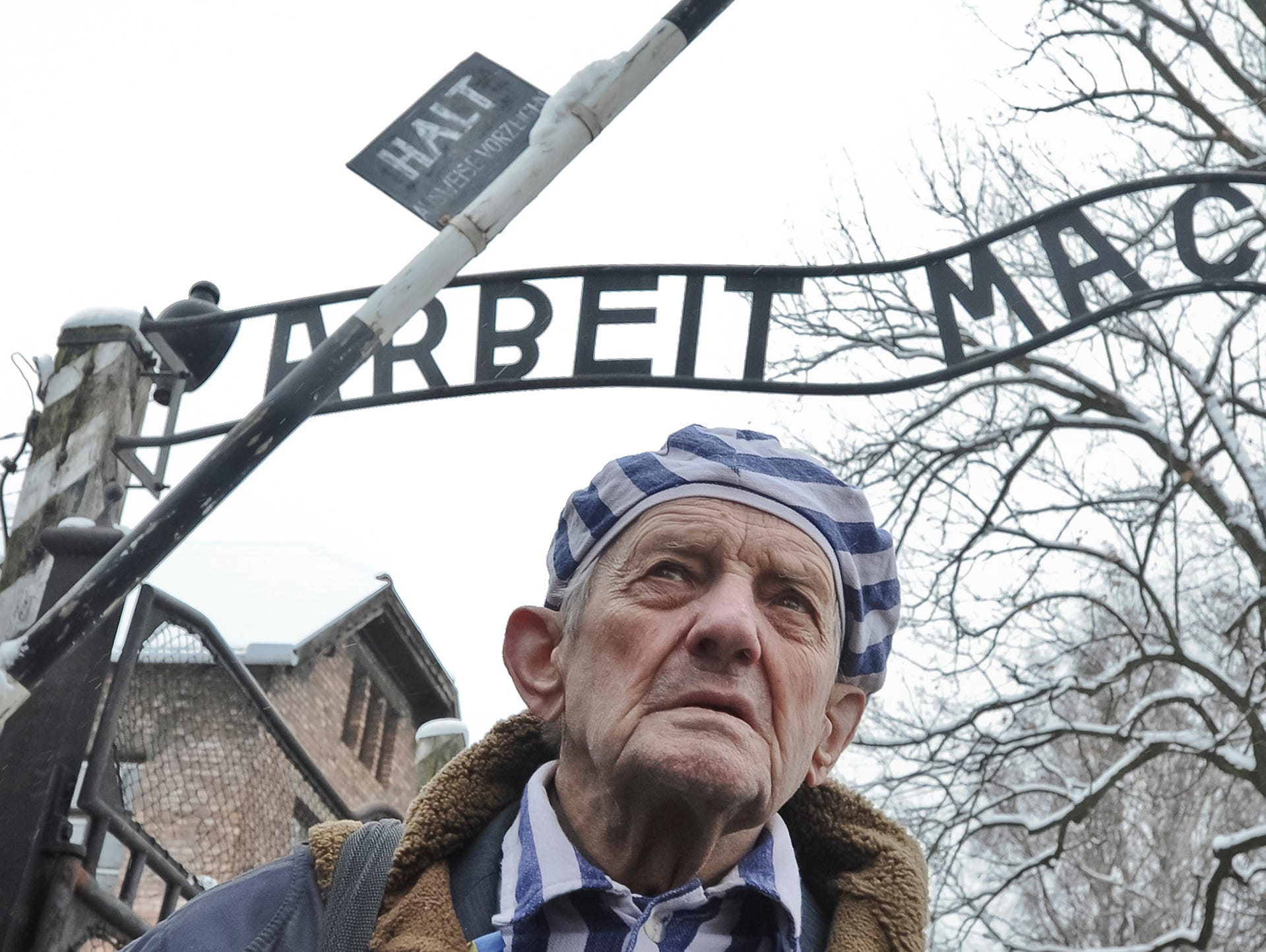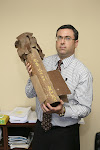TEL AVIV, Israel — Shortly after the Nazi invasion of what was then Hungary in May 1944, Renee Ganz's family and most of the 25,000 Jews in the city of Oradea were forced into cattle cars and transported to the Auschwitz-Birkenau concentration camp.
Men and boys were placed in one line, while women and girls were led to another when they arrived at the camp in Oświęcim, Poland. Ganz was just 15 at the time.
"I asked a German soldier why we were being separated and he said, 'You've had a long journey. You need to take a shower,'" Ganz, now 86, recalls. "That's when the selection began."
German officers took one look at the prisoners and decided who would live and who would die.
"If they pointed left, you went to the gas chambers and crematorium. If they pointed to the right, you became a slave," she says. "We were sent to the right, but I never saw my father or brother Nikolai again."
Ganz, a self-described optimist, tries not to dwell on the horrors of the Holocaust and the 100 relatives she lost, but the 70th anniversary of the liberation of Auschwitz-Birkenau has stirred up painful memories. She spent two months at Auschwitz before being sent to a slave labor camp along with her mother, who also survived the war.
On Tuesday — Holocaust Remembrance Day — Ganz will return to the death camp for the first time, along with nearly 100 other Auschwitz survivors from 19 countries.
"It will be very difficult, but it is important," she says.
A medical team of 12 doctors, psychologists and nurses will accompany the survivors, ages 73 to 96, because of the "emotionally powerful and physically taxing" nature of the visit, the World Jewish Congress said.
"This may be the last major anniversary we will be able to remember with those who experienced the Holocaust firsthand. From this historic event, their voices will echo across the generations," says Robert Singer, secretary general for the Jewish congress, which helped organize the event.
Of the more than 1.1 million people who died at Auschwitz, about 90% were Jews, according to the Yad Vashem Holocaust World Center in Jerusalem. About one in six of all Jews killed during the Holocaust died at the camp. Also killed there were homosexuals, Soviet prisoners of war, Christian Poles, Romani and others.
Hundreds of thousands of prisoners transported from all across Europe were sent to the gas chambers, then cremated at the camp. Those who survived the daily death "selections" often died from infection or starvation.
As the Soviet army was approaching in January 1945, the Nazis stepped up their exterminations and — in an attempt to destroy evidence of their genocide — sent the surviving prisoners in Auschwitz and its satellite camps on a series of death marches.
Emaciated and dressed in flimsy uniforms unsuited to the frigid cold of a Polish winter, thousands of prisoners died as a result.
"After the war ended we learned that my brother died just two weeks before the liberation," Ganz says, her voice cracking.
When he was 16, Shalom Lindenbaum was sent to Auschwitz-Birkenau in July 1944 along with his parents and sister. His older brother, Moshe, had already died from illness in a labor camp.
"We were sent straight to Birkenau because the Nazis wanted us as laborers, and other than for the children and the elderly there was no selection," says Lindenbaum, now 88 and a retired professor of Hebrew literature.
"They tattooed numbers on our arms and shaved both the men and the women everywhere we had hair," he says while sitting in his book-filled home in Ramat Gan, a Tel Aviv suburb.
Lindenbaum and his father were then sent to the nearby Buna-Monowitz concentration camp, while his mother and sister remained at Auschwitz-Birkenau. On Jan. 18, 1945, Lindenbaum and his father were among 1,500 surviving prisoners sent on a death march.
"My sister and mother, meanwhile, were sent on a death march toward Bergen Belsen," another concentration camp, he says. "After four or five days in the bitter cold, only 500 or 600 of our original 1,500 were alive."
Lindenbaum's mother died the day after Bergen Belsen was liberated. "She told my sister that she knew I was still alive and asked her to tell me to recite Kaddish, the memorial prayer, for her."
Lindenbaum, who will attend the Auschwitz ceremony in Poland, said the anti-Semitism that fueled the Holocaust survives today.
"After 70 years a Jew still can't walk freely on the streets of Europe without fearing for his life," he says, referring to many assaults there, including the terror attack on a kosher supermarket in Paris this month that left four Jews dead.
Ganz agrees: "Anti-Semitism will be around for another thousand years." For her, traveling to Auschwitz is about getting "revenge," she says.
"I have children, grandchildren and great-grandchildren. The Germans tried to kill the entire Jewish people but they failed. I am alive. I am here."


